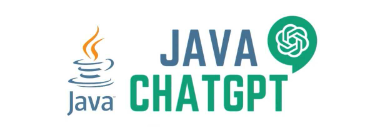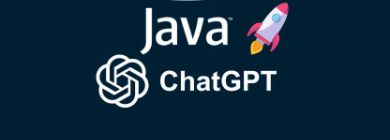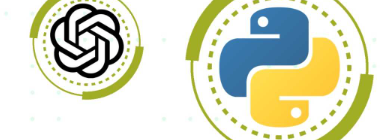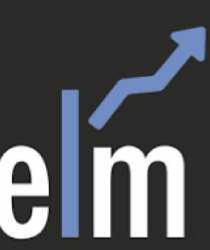Income tax deductions are not inflation linked hitting taxpayers harder: Budget 2025 needs to hike these Tax slabs and rates under the new regime have been refined to enhance its appeal. However, is the recalibration of the new tax regime and the reduction in tax rates effectively countering annual inflation?
Shalini Jain
Rajnish Gupta
The author is the Managing Director and Country Manager of Tenable India, a leading cybersecurity company.
Over the years, the Indian income tax system has undergone significant reforms aimed at simplifying compliance and expanding the tax base. One notable change for salaried taxpayers came in the 2020 Budget, which introduced a new optional tax regime featuring lower tax rates but without many traditional deductions and exemptions. The exemptions/deductions excluded from the new tax regime include tax breaks for house rent, deductions for home loan principal and interest on self-occupied property, contributions to provident funds, and payments for life and health insurance premiums. Taxpayers were given the option to choose between the new regime and the existing one every year, depending on which offered greater tax savings.Budget with ET
Fraught juggling act draws near for Nirmala Sitharaman. What will Feb 1 bring?
Budget 2025 needs to pull off a big growth trick for the untapped half of its firepower
2 key events coming up for India as world readjusts to Trump 2.0
The old legacy tax regime has largely remained unchanged, with tax rates and the limits of common exemptions and deductions remaining constant. For instance, the maximum deduction of Rs 1,50,000 under Section 80C of the Income-tax Act, 1961, which covers home loan principal repayments, provident fund contributions, public provident funds, and life insurance premiums, has not been increased since 2014. Similarly, the deduction for home loan interest on self-occupied properties, capped at Rs.2,00,000, was last revised in 2014.Between 2014 and 2024, cumulative consumer inflation, as measured by the Consumer Price Index (CPI), exceeded 60%. If adjusted for inflation, the Rs.1,50,000 deduction under Section 80C in 2014 would equate to Rs.2,40,000 in 2024. Likewise, the Rs. 2,00,000 deduction for home loan interest would translate to Rs.3,20,000 in 2024. This indicates that the real value of these exemptions has significantly diminished over time.
Since its introduction, the government has actively promoted the new tax regime, citing its reduced compliance burden for both taxpayers and authorities. Tax slabs and rates under the new regime have been refined to enhance its appeal. In the 2024 Budget, further adjustments were made, offering an additional tax benefit of up to Rs 17,500 (excluding surcharge and cess). This was achieved by increasing the standard deduction for salaried individuals and lowering tax rates under the new regime.
However, a critical question remains: is the recalibration of the new tax regime and the reduction in tax rates effectively countering annual inflation? Are these measures ensuring that the disposable income and savings of lower- and middle-income taxpayers are inflation neutral i.e., if the pre-tax income was to increase only due to inflation, then the post-tax income also increases at the same rate as inflation?
Let us take a hypothetical example and consider a case, where income of up to Rs.10 lakh is taxed at 20% and above that @ 25%. Say the current income is Rs.10 lakh. The post-tax income for the individual in this case will be Rs 8 lakh. Assuming the income increases with inflation of 5%, to Rs.10.5 lakh in the next year. If the slabs were to continue at same levels, the post-tax income would be Rs.837,500. Adjusting for inflation, there would be a decline in real income from Rs.800,000 to Rs.797.619. If the slabs were to increase with inflation, then Rs 10 lakh limit would increase to Rs.10.5 lakh. The post-tax income would be Rs.840,000, which, with the inflation adjustment, would be equal to Rs.800,00 in the previous year.
Currently, India does not have a mechanism to adjust tax slabs, exemptions, and deductions in line with inflation. The government could draw inspiration from some developed economies where tax systems are inflation-indexed. In the US, for instance, income brackets are adjusted annually to reflect inflation. Similarly, countries like Germany, Finland, Sweden, and Norway align income slabs with the cost-of-living index. Austria has recently adopted an automatic inflation adjustment mechanism to recalibrate income slabs annually.
The Indian government could also consider adjusting tax slabs, exemptions, and deductions based on the annual inflation rate. This would help preserve taxpayers' real incomes, ensuring that inflation does not erode their post-tax purchasing power.
The article is written by Rajnish Gupta, Partner, Tax and Economic Policy Group and Shalini Jain, Tax Partner, EY India. Akshay Sharma, Senior Tax Professional, also contributed to this.
(Disclaimer: The opinions expressed in this column are that of the writer. The facts and opinions expressed here do not reflect the views of www.economictimes.com.)
This story originally appeared on: India Times - Author:Faqs of Insurances




























































